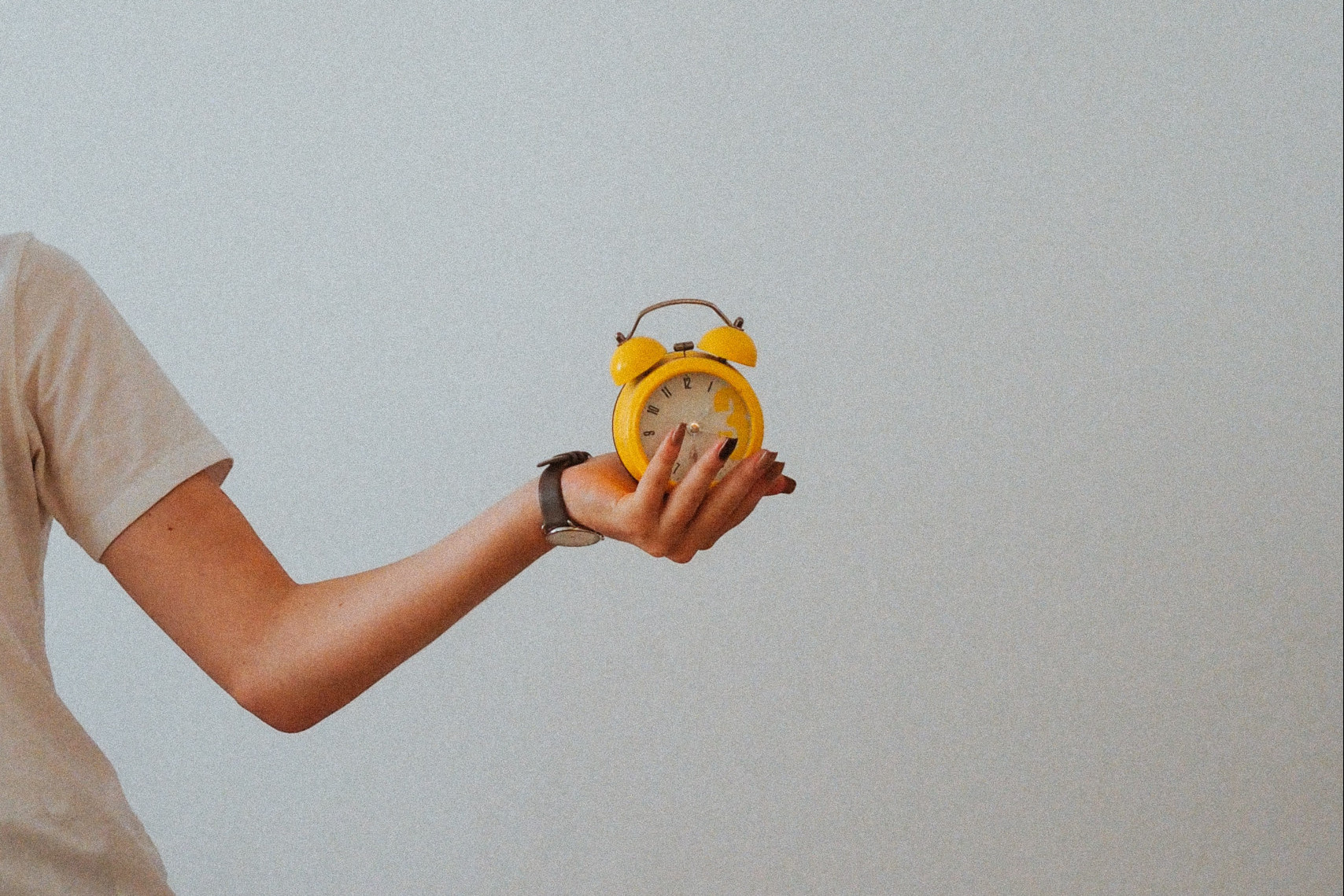Sleep Hygiene and Eating Disorders
When I first heard the term ‘sleep hygiene’, I was confused. I thought it was something to do with showering before bed to get a good night’s sleep? Fortunately for you lovely folks, I did my research before I wrote this to get a handle on the concept!
To keep it simple, ‘sleep hygiene’ refers to how your environment and habits can be enhanced for a better night’s sleep. For strong sleep hygiene you want your bedroom and daily routine to promote a good, consistent sleeping pattern – something which is also pretty essential to eating disorder recovery and maintaining your mental health.
The question is, how do we know if our sleep hygiene is good?
I have an iPhone and Apple watch which tracks my sleep for me (apparently). I raise an eyebrow when thinking about how accurate it is, but for the purpose of this blog I’m going to hope that it is somewhat indicative of my sleep schedule. According to the app, in the last month I have had an average of 7 hours and 10 minutes sleep, which is good (I think!) According to the NHS, adults need between 7 – 9 hours sleep per night.
Good quantity, but what about quality? I wasn’t really sure where to start, but I found the NHS sleep self-assessment! It’s a short questionnaire to help you find your sleep score and whether you need to rethink your sleep hygiene. I did alright, a score of 27 which isn’t perfect but pretty good.
Why is sleep (and sleep hygiene) so important?
We all know that sleep is important for both physical and mental health, without it we would not function effectively. Like a rest day from the gym or exercise routine, sleeping helps to repair and restore not just our bodies but our brains too.
We all know what it’s like to go to work after a bad night’s sleep. For me, I’m irritable and moody, less productive and the day just feels impossible (sorry team!) After a good night’s sleep, however, I’m more motivated, creatively inspired and more proactive.
Not only that, research tells us that sleep helps us with muscle repair, healthy hormones and things like…
- helping us to navigate our days with less anxiety.
- increasing our capacity to learn and make logical decisions.
- restoring our immune system and helps prevents infection.
- Helping to maintain the microbiome within the gut, a key ingredient for nutritional health.
- and supporting healthy blood pressure and cardiovascular health.
Source: Walker, M. (2018). Why We Sleep; Unlocking the Power of Sleep and Dreams.
Basically, sleep is our ticket to improving our quality of life, no matter what our age or background. And the best bit? It a bit of self-care that doesn’t have to cost a thing. We can all give our sleep hygiene a boost without any expensive gimmicks, vitamins or subscriptions. Hallelujah.
What about for eating disorder recovery?
Whilst sleep seems to be relatively overlooked in recovery, it might be a key tool to give your recovery journey a boost. I mean, look at the benefits I’ve already mentioned? Do you feel the impact of a bad night sleep? Could it be contributing to a lack of motivation, or setbacks in recovery?
Our mood can make a huge difference to any difficulties or challenge we are set to face in a day, so naturally if our mood is impacted by a bad night’s sleep, uh oh! Things just got a little bit harder.
What are the signs of poor sleep hygiene?
- Do you struggle falling asleep? Or find yourself tossing and turning a lot?
- Are you getting up and out of bed during the night?
- Do you struggle to get out of the bed in the morning?
- How are you feeling during the day? Are you feeling lethargic or in need of a nap?
If you said yes to any or many of the questions above, you might need to work on your sleep hygiene and explore what’s going on. Ultimately, if you lack consistency in sleep, either quantity or quality, then it’s something you should work on.

So, how do we get better at sleeping?
Paying attention to ‘sleep hygiene’ is the simplest way to get your sleeping pattern back on track. And that means checking in on your routine, sleep schedule and daily habits to make sure you’re doing what you can to promote happy snoozing.
Our needs are different, so understanding best practice can be a bit of a process. I, for example, love a cup of tea before bed. I’ve never really thought about why, but I think it’s because of the warmth and it means I don’t go to bed on an empty stomach. However, I’m pretty sure if I said that to the sleep-police they’d flag the caffeine and tell me it isn’t beneficial for a good night’s sleep, and maybe I should switch to decaf.
I guess what I’m saying is, find what feels good. To help, have a read through some of the tips I’ve found below and figure out the things that work for you.
Set a schedule that works for you.
This is an essential first step. Sleep is a fundamental part of your day, and yet many of us just sleep when we can without a fixed bedtime or wake-up call. A good mindset and lesson to learn is that you don’t have to earn sleep. Sleep is a vital part of staying mentally healthy! Don’t let your work, social life and other aspects of your routine dictate when you go to bed.
If you can, try to establish a fixed wake-up time (and that means your weekend too!) and this will help you get into a rhythm. It might feel a little strange at first so you could make gradual adjustments rather than trying it all in one fell swoop (which might throw the rest of your current routine into chaos.)
Rethink how you get ready for bed.
Your evening routine matters and could be a vital factor in how well you’re sleeping. Here are a few tips for establishing a kick-ass routine:
- Save 30 minutes of your day to help you wind down. This’ll look different for everyone. I try to end my days with a few pages of a book, but I know folks who prefer stretching and yoga and others who play music from their phone on a timer. Not sure? Try them all!
- Explore mindfulness, meditation and different breathing techniques.
- Turn off the light. My bedroom light is almost never on. Instead, I have a soft lamp which is the perfect mood-lighting for a comfort and relaxation in the bedroom. And it’s not just your bedroom light you need to think about, what about the brightness of your phone?
- In fact, ditch the phones altogether. Unplugging from your electronics an hour before bed can really help.
- Keep it consistent and follow the same routine each night. This includes your pjs, teeth brushing, etc. Everything which tells your soul to get ready for the Zzzs.
No more tossing and turning.
It’s easy to get fed up with yourself when you can’t sleep, flapping around trying to figure out what’s comfy. Instead! If it’s been 30 minutes, get out of bed for a stretch and to shake it off. You could try to redo that 30-minute routine or something else which is calming before closing your eyes and trying again.
Don’t overdo it with naps.
I love a nap, but I almost always overdo it. I go in with good intentions and set a little timer on my phone, but in my nap-state I snooze or accidentally switch off the alarm as soon as it buzzes.
Naps are a great way to give you a boost in energy during the day, but it’s true that they can throw you off your sleep-game at night. If you can, be strict with yourself and avoid napping to late in the afternoon… Advice that I will try to adopt myself, I promise.
Don’t ignore your daily routine and habits!
It’s not just that 30-minute window before bed which can secure you a good night’s sleep. Developing a good routine during the day can help support your circadian rhythm and limit disruptions to your sleep. Here’s a few things to think about:
- Fresh air and sunlight. Both are really important for your body clock and can encourage quality sleep. (check out our Nature Connection blog and how it can benefit our mental health!)
- Get moving. It has a host of benefits, including helping us fall asleep at night.
- Cut down on the alcohol. It may give you the illusion of sleeping easier, but that’s just for the short term and can disruption you over night or early in the morning.
- And while you’re at it, cut down on the caffeine too.
Like I mentioned before… This one doesn’t seem to impact me when it comes to a late-night cup of tea, but it is a stimulant and can keep you feeling wired later into the evening. The general advice is to limit your caffeine intake after lunch.
Limit your bedroom activity.
Much like we know the bathroom is where we wash and clean ourselves, our mind should associate our bed with sleep (with some exceptions, of course.) So, quit working in bed, or snacking, scrolling, emails, Netflix and all that other stuff which is not meant for bed.
Spruce up your bedroom.
If you’re at home right now head up to your room for a minute. Look around and ask yourself, do I want to sleep in here? A bedroom should radiate warmth and tranquillity, or at least a sense of calm and be free from disruptions. If you’re looking at your space and it’s not working for you, think about your senses:
But what if that doesn’t work?
There is a lot to go at there, so be patient and give yourself plenty of time to figure out a routine that works for you.
It is also important to know that improving your routine and sleep hygiene won’t always solve your sleeping issues. If it is something you’re worried about, speak to your GP or support worker (if you have one) because sometimes other treatments are necessary.



